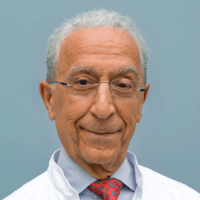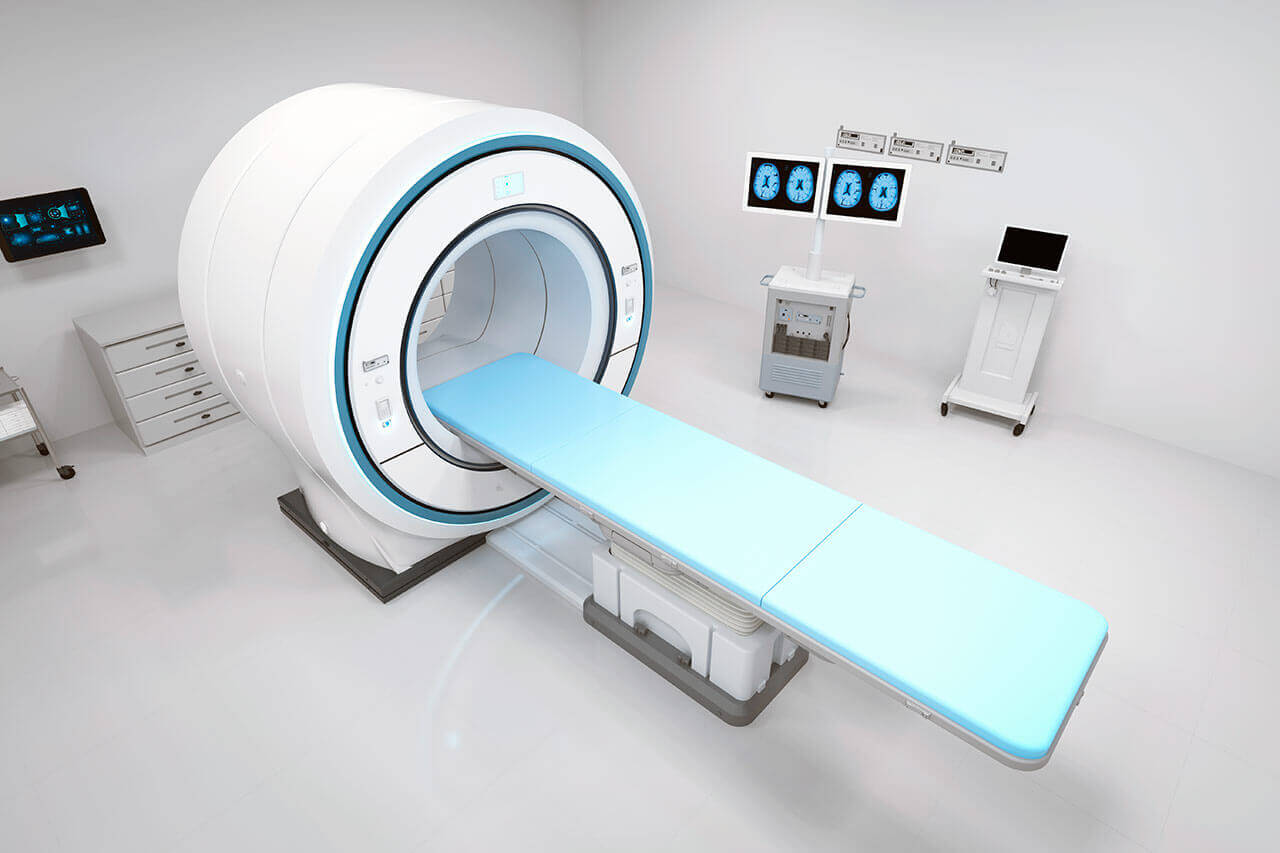
The program includes:
- Initial presentation in the clinic
- clinical history taking
- review of medical records
- physical examination
- laboratory tests:
- complete blood count
- general urine analysis
- biochemical analysis of blood
- inflammation indicators (CRP, ESR)
- indicators blood coagulation
- neurological examination
- functionality x-ray
- CT/MRI scan
- neuropsychological tests (on indications):
- ENMG (electroneuromyography)
- EEG (electroencephalography)
- SEPs (somatosensory evoked potentials)
- VEPs (visually evoked potentials)
- BAEP tests (brainstem auditory evoked potential)
- preoperative care
- resection of subdural brain hematoma
- blood transfusions (if needed)
- 5-days intensive care unit stay
- postoperative MRI control
- symptomatic treatment
- control examinations
- neurorehabilitation 10 days
- the cost of essential medicines and materials
- nursing services
- full hospital accommodation
- developing of further guidance
Required documents
- Medical records
- X-ray examination, MRI/CT scan (if available)
Service
You may also book:
 BookingHealth Price from:
BookingHealth Price from:
About the department
The Department of Adult and Pediatric Neurosurgery at the International Neuroscience Institute Hannover performs the full range of surgical interventions to treat diseases of the brain and spinal cord, peripheral nervous system. The department admits both adults and children. The specially trained team of pediatric neurosurgeons takes care of the health of young patients. The key attention in clinical practice is paid to the surgical treatment of oncological diseases of the nervous system, including tumors of the brain, spinal canal, skull base and pituitary gland. The surgical treatment of epilepsy in adults and children, operations for aneurysms and vascular malformations are also among the priority areas of work of the department's neurosurgeons. The interventions are performed in high-tech operating rooms, in compliance with all standards of hygiene and safety. Most surgical procedures are carefully planned using computed tomography and brain mapping systems, which excludes damage to functionally important anatomical structures. Whenever possible, the preference is given to sparing surgical techniques, with surgical access through one or more small incisions. The Chief Physician of the department is Prof. Dr. med. Dr. h. c. Madjid Samii.
Neurosurgical procedure is the last-line of treatment, and therefore the department's specialists jointly with neurologists and neuroradiologists individually consider the patient's clinical case prior to surgery. Only if all conservative methods are ineffective, the doctors make a choice in favor of surgery. Successful surgical interventions on the brain or spinal cord are possible only with advanced medical equipment. Thus, the department's operating rooms are equipped with state-of-the-art surgical microscopes, neuronavigation and intraoperative systems, thanks to which neurosurgeons can perform the most accurate manipulations without any risks to the patient's health. It should be noted that the department ranks among the leading Neurosurgery Centers in Germany and throughout Europe. The team of neurosurgeons aims to not only cure the patient from pathology, but also preserve the functions of the nervous system, thereby providing the patient with a decent quality of life.
The surgical treatment of brain and spinal cord tumors is of particular interest to the department's team of doctors. Should the patient be diagnosed with cancer, neurosurgeons jointly with oncologists, radiologists, chemotherapists and other specialists develop a step-by-step treatment regimen. As a rule, tumor resection surgery becomes the basis of therapy. An innovative method of stereotactic radiosurgery is often used as well. The essence of the technique is the targeted destruction of tumor cells and metastases by X-rays. The procedure is highly effective and eliminates damage to vital structures and healthy brain tissue. Many surgical procedures to resect brain and spinal cord tumors are minimally invasive, which facilitates rapid postoperative recovery.
The department's neurosurgeons are proud of their outstanding success in the treatment of cerebrovascular diseases. The specialists are focused on the patients with brain aneurysms, arteriovenous malformations of the brain and spinal cord, dural arteriovenous fistulas, carotid stenosis and intracranial vascular stenosis. When treating the above pathologies, the department's neurosurgeons mostly use minimally invasive and endovascular techniques.
The department's team of pediatric neurosurgeons performs surgery to treat brain and spinal cord pathologies in children of different age groups. The most common pathologies of the central nervous system in children include brain and spinal cord tumors, hydrocephalus, arachnoid cysts, congenital malformations, craniosynostosis, malformations of the brain and spine (hemimegalencephaly, focal cortical dysplasia, lipomyelomeningocele, myelomeningocele, spinal lipoma, Chiari malformation). As with adult patients, minimally invasive surgery is always preferred, while classic open surgery is extremely rare.
The main clinical focuses of the department include:
Surgery for brain tumors and brain metastases (for example, gliomas, meningiomas) |
Surgery for skull base tumors (for example, neuromas) |
Surgery for pituitary tumors (for example, pituitary adenoma, craniopharyngioma) |
Surgery for spinal canal and spinal cord tumors |
Surgery for vascular malformations, aneurysms and cavernomas |
| Surgery for acoustic neuromas |
Surgery for epilepsy |
Surgery for degenerative diseases of the spine (for example, herniated discs, spinal stenosis, spinal instability) |
Operations for pathologies of the peripheral nervous system (injured nerve endings, compression syndromes) |
Operations for hydrocephalus, arachnoid cysts, congenital malformations, craniosynostosis, hemimegalencephaly, focal cortical dysplasia and other brain pathologies in children |
| Surgery for other diseases of the nervous system in adults and children |
The surgical options of the department include:
Classic open surgery (rarely) |
Minimally invasive surgery |
Microsurgery |
Endoscopic surgery |
Endovascular surgery |
| Navigation-assisted surgery |
Image-guided surgical interventions using intraoperative CT systems |
Stereotactic radiosurgery |
Other services |
Curriculum vitae
Prof. Dr. med. Dr. h. c. Madjid Samii is the President and Founder of the International Neuroscience Institute Hannover. He also heads the Department of Adult and Pediatric Neurosurgery at the same medical facility.
The specialist received his medical education at the Johannes Gutenberg University of Mainz (1957-1963). From 1958 to 1962, he studied to get the second degree in zoology and botany at the Faculty of Natural Sciences of the Johannes Gutenberg University of Mainz. In 1963, the doctor passed his State Medical Exam, and in 1964 he defended his doctoral thesis at the University of Mainz.
In April 1963, he began his clinical activities as Assistant Physician in the Departments of Internal Medicine and Gynecology. In March 1965, he continued his clinical training in Obstetrics and Surgery, and then worked for eight months as Assistant Physician in the Department of Neurosurgery.
From April 1965, Prof. Madjid Samii held the position of Research Fellow in the Department of Neurosurgery at the University Hospital Mainz. In 1970, the doctor had his board certification in Neurosurgery, after which he was appointed as Managing Senior Physician and as the Deputy Head of the department. In the same year, the specialist had his habilitation procedure in the field of Neurosurgery and, one year later, was appointed as Extraordinary Professor. At that time, he was responsible for the organization and conduction of the annual courses in microsurgery (until 1977).
In 1974, Prof. Samii was appointed as Academic Advisor and Professor with permanent civil service (for life). Since 1997, he has headed the Department of Neurosurgery at the Nordstadt Hospital in Hanover. In 1979, the doctor took over the organization and conduction of the annual courses on skull base surgery. In 1982, he became a Visiting Professor in the Faculty of Medicine at Harvard University in Boston. In 1983, he headed the organization and conduction of the first World Conference on Medical Telecommunications, which was attended by physicians from all over the world.
In 1986, Dr. Madjid Samii headed the Department of Neurosurgery at Leiden University in the Netherlands. From 1986 to 1988, he worked as President of the Research Group on Skull Base Surgery of the International Skull Base Society. In addition, in September 1987, Prof. Samii gave a lecture for which he was awarded the Nobel Prize at the Karolinska Institute in Stockholm, Sweden. At the end of 1987, the neurosurgeon accepted an invitation to hold the position in the Department of Neurosurgery at the University of Mainz. The next year he held the position in the Department of Neurosurgery at the Hanover Medical School. In 1988, the doctor was also awarded the Lower Saxony State Prize for his contribution to science. He was also awarded the Order of Merit of the Federal Republic of Germany for his achievements in scientific research and their practical application in neurosurgery. In the same year, Dr. Samii was appointed as Honorary Professor of the Faculty of Medicine at the Military Academy in Beijing, China. He also became Professor at the University of Toronto, Canada, and Vice President of the International Skull Base Society. In 1989, Prof. Samii held the position of the President of the German Society of Plastic, Reconstructive and Aesthetic Surgeons. In addition, he was appointed as Visiting Professor at the Faculty of Medicine at the University of California (Lifetime), Los Angeles, USA.
In 1991, Dr. Madjid Samii was a Founding Member and 1st President of the German Society for Skull Base Surgery, Founding Member and 1st President of the Neurobionics Foundation, Founding President of the AWD Children's Aid Foundation in Hanover and Honoured Guest of the North American Skull Base Society.
In 1992, he gave a lecture in Charlottesville, USA, and was also appointed as the President of the International Skull Base Society, President of the 1st International Congress for Skull Base Surgery, and held the position of Honorary Professor at the Faculty of Medicine at the University of the Republic in Uruguay.
In 1994, Prof. Madjid Samii became Honorary Citizen of the city of Rosario, Argentina, and was also awarded the title of Dr. h.c. of the Pontifical Catholic University of Rio Grande do Sul, Porto Alegre, Brazil. In addition, Madjid Samii was the Board Member of Expo 2000 exhibition in Hannover in 1995. The next year, he was elected as the First Chairman of the German Society of Neurosurgery. Since 1996, the Professor has held the position of Chief Physician of the Department of Neurosurgery at the Hanover Medical School and the Nordstadt Hospital in Hanover.
In July 1997, Dr. Madjid Samii became the President of the World Federation of Neurosurgical Societies until 2001. In June 1998, the neurosurgeon was awarded the "Aristotle Gold Medal" by the Aristotle University of Thessaloniki.
In April 2000, the doctor was appointed as Honorary Professor for Neurosurgery at the University of Florida in Gainesville, USA. In 2000, he became Medical Director of the International Neuroscience Institute Hannover and was awarded the Rudolf Frey Award for excellent work in pain management. In 2001, Prof. Samii was appointed as Honorary President of the German Society for Computer- and Robot-Assisted Surgery (CURAC) and Honorary President of the World Federation of Neurosurgical Societies.
In 2003, the specialist received a special award – "Visiting Professor of the Royal College of Physicians and Surgeons of Canada with a grant of 10,000 USD". For the first time since 1960, this award has been given to a neurosurgeon from Germany and other countries of the world.
Photo of the doctor: (c) International Neuroscience Institute®
About hospital
The International Neuroscience Institute Hannover is an advanced highly specialized hospital that provides patients with the diagnostics of diseases of the nervous system and further required treatment. The key areas of competence of the medical facility include neurology, neurosurgery and neuroradiology. In addition, the hospital has laboratories for science experiments and clinical research. The hospital was founded in 1998 by Professor of Neurosurgery Majid Samii and over the time of its clinical activities has gained an impeccable reputation not only in Germany, but also far beyond its borders. The medical complex has unique medical equipment, which allows the specialists to treat diseases of the brain and spinal cord, spine and peripheral nerves using innovative therapeutic methods, many of which are not available in developing countries.
The presence in the hospital of such high-tech devices as a 3 Tesla MRI scanner, a 128-slice CT scanner, a 1.5 Tesla intraoperative MRI scanner, an intraoperative 32-slice CT scanner, a biplane angiography system and intraoperative neuromonitoring systems allows the doctors to accurately determine the nature of pathological changes in the nervous system, as well as reliably monitor each surgical manipulation in order to exclude damage to important functional regions of the brain and spinal cord. The hospital performs innovative stereotactic radiosurgery offered by only a few leading medical centers in the world.
The hospital is also proud of its medical staff, consisting of leading German specialists in neurosurgery, neurology, diagnostic and interventional neuroradiology, internal medicine, oncology, otolaryngology, ophthalmology, orthopedics and other medical disciplines. The work of an interdisciplinary medical team allows the doctors to provide the most effective treatment, taking into account all the clinical features of a particular neurological disorder. The doctors of the medical complex always strive to establish a trusting contact with the patient, devote enough time to personal communication with their patients and always try to support them on their way to recovery. The health of the patient is the main value for the hospital's medical team, and therefore all the doctors' efforts are aimed at achieving complete recovery or long-term remission in case of incurable diseases of the nervous system.
The hospital is notable for its unusual architecture – the shape of a huge building made of glass and metal resembles a human brain. The hospital has a cozy and pleasant atmosphere. It is focused on the patients' comfort, and therefore all diagnostic and therapeutic rooms are designed in such a way that a person does not feel like he is in the hospital. The interior of the hospital is more like a modern comfortable hotel
Photo: (с) depositphotos
Accommodation in hospital
Patients rooms
The patients of the International Neuroscience Institute Hannover live in single, double and triple rooms with all the necessary amenities. The design of the rooms gives patients the impression that they are in a top-class hotel, but not at the hospital. All patient rooms have modern furniture. They are made in pleasant light colors and have large windows offering scenic views of the nearby park. Each patient room has an ensuite bathroom with shower and toilet. The patients with disabilities are offered rooms with a specially equipped bathroom. All patient rooms have TV and telephone. In addition, if desired, the patient and his accompanying person can live in modern apartments with an exclusive design.
The medical facility has beautiful meeting rooms for family and friends. These rooms are decorated with works of art, including paintings and sculptures. It is worth noting that the hospital is located near a large park, which is ideal for walking when free from therapeutic procedures.
Meals and Menus
The patients of the hospital are offered delicious meals in the spacious and cozy cafe of the medical facility. The menu features German and Oriental cuisine, as well as kosher dishes. When cooking, chefs use only high-quality and fresh products, while their skills allow creating incredibly delicious culinary masterpieces.
Further details
Standard rooms include:
Accompanying person
During the inpatient program, the accompanying person can live with the patient in a patient room or a hotel of his choice. Our managers will help you choose the most suitable option.
Hotel
During the outpatient program, the patient can stay at the hotel of his choice. Our managers will help you choose the most suitable option.




